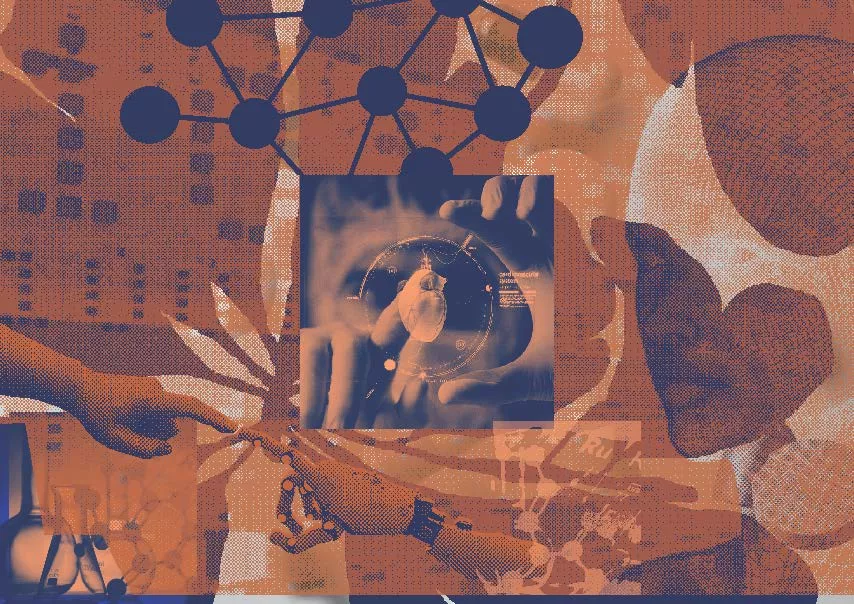Roadmap of Biomaterials 4.0
Theme 2023-2024
The development of bio-based materials used in the field of medicine has reached a stage where material design is interconnected with information technology, with artificial intelligence (AI). The new materials have a number of properties that make them very attractive for biomedical application, but the development also involves a number of challenges; both scientific and social. In order to exploit the full potential of biomaterials and minimize time, energy and resources, a transition from traditional design techniques to powerful virtual tools that enable more efficient design is required.

The Theme will work on issues related to these "fourth generation" bio-based materials for medical applications with regard to related social and philosophical issues. The focus is to debate how to integrate AI with biomaterial science (beyond gene sequencing and transcriptomics) to design and develop biomaterials. Societal needs will be addressed with a particular focus on biomedicine and how to establish a sustainable cycle from step one, the choice of raw material, to the end product.
When artificial intelligence (AI) is integrated with biomaterials, data can be mined for analysis and research purposes in ways that were previously impossible. The use of AI to design, understand, process and manufacture biomaterials dramatically reduces both the time it takes and the number of laboratory experiments needed to translate new biomedical innovations into clinical practice. Implementing new AI methods in biomaterial therapeutics accelerates the development of personalized and precise biomaterials for medical applications. Time-consuming experimental and clinical trial periods in various applications (e.g., diagnostic devices, bone regeneration, wound healing, and drug delivery) are significantly shortened. For these reasons, there is a high demand for advanced technology in the field, but despite this, there are still extensive challenges in terms of design, production, application and implementation.
Scaling up and implementing these new materials in biomedicine raise significant challenges, both scientific and social, and lie - for example - in relying on modeling and human experimentation, identifying suitable AI techniques, collecting sufficient experimental data, scalability and production, intellectual property rights, regulation, data transparency and privacy.
There is currently limited common language in biomaterial databases. How do we tackle this shortcoming that causes limitations in applying AI-based text analysis methods to discover/improve bioinspired materials? What are the most promising AI tools for producing, characterising, and benchmarking biomaterials? Further, the interdisciplinary skills required to meet the inherent challenges, require capable management and leadership. How can a sustainable development process for biomaterials 4.0 be organised, managed and led? How should big data be treated in relation to data regulation and intellectual property laws? From a more practical perspective, what are the legal frameworks of patients' rights relating to transparency and comprehension?
The Theme will examine the challenges inherent in the transition from traditional design techniques to powerful virtual tools for biomaterials development and work towards potential solutions in order to develop a roadmap for the future of biomaterials 4.0.

